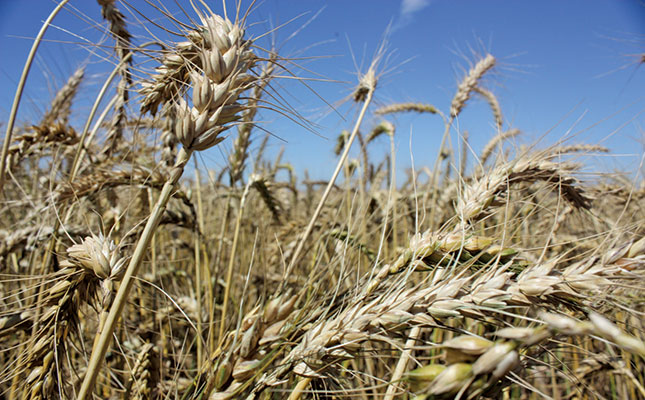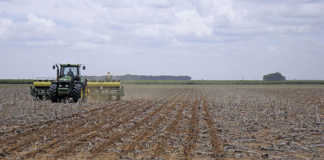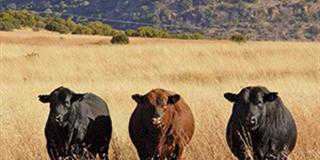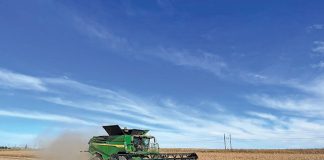
Photo: FW Archive
Traditionally, agricultural and food companies have been treated as the stepchildren of the stock market.
Today, however, global supply constraints, combined with rising demand for food and technological developments, have turned many of these companies into attractive components of a well-diversified investment portfolio.
According to Andrew Dittberner, chief investment officer at Old Mutual Private Client Securities, annual shareholder returns for listed energy companies and information technology companies since 2004 have averaged 13% and 10% respectively, whereas returns of more than 100 global listed food and agri companies have averaged about 17% a year.
The outlook for the sector is also bullish, as its long-term dynamics are supported from both the demand and supply sides.
“Agricultural commodities are essentials used as food, feed and fuel, and the demand for each of these is bound to increase. On the supply side, both arable land and water are becoming scarcer, which in turn will result in an increased demand for livestock feed,” he says.
Top agri stock picks
Dittberner differentiates between the commodity derivatives market and the equity market. Agricultural producers, users and investors use the commodity derivatives market, such as Safex, to manage their exposure to prices they may receive or pay for commodities.
Investing in agriculture through the equity market, however, gives an investor exposure to the end-business, the value of which is related to the future profitability of the venture.
He identified Atlas Copco, BASF SE, Deere & Co, Ecolab, Mondi, Unilever, Archer Daniels, Tyson Foods, Zoetis and Agco Corp as some of the companies that have performed well in recent times, and singled out Nestlé and AB Inbev as his top picks.
“Nestlé is the largest food and beverage manufacturer in the world and boasts a broad portfolio of products,” he says.
AB Inbev, the world’s largest beer company, has a leading market position in the most important beer regions of the world and earns nearly 50% of its profits in the global beer market.
“The nice thing about the beer market is that people drink beer when times are good, and when times are tough, they drink more beer,” he says.
David Lerche, senior investment analyst at Sanlam Private Wealth, agrees that food and agri companies represent good investment opportunities.
“Many food and agri companies have been traditionally undervalued, especially in the South African market, due to various factors, including poor soft and hard commodity prices.”
Drought conditions in various parts of the country over the past few years have also undermined financial performance in the sector, according to Lerche.
However, prospects are looking brighter now with the return of rain in many parts. Lerche identifies Omnia as his top listed pick and Acorn Agri & Food as his top unlisted pick.
“Omnia is recovering well from the drought, poor grain prices and a poor demand for explosives in the mining sector,” says Lerche.
“Its latest acquisition of fertiliser company Oro Agri will also help the company to significantly expand its global footprint.”
He chooses Acorn Agri & Food, which developed out of a merger between Overberg Agri and Acorn Agri at the start of the year, because Overberg Agri has years of expertise in agricultural production, whereas the strength of Acorn Agri & Food lies in its business strategies and corporate finance.
“The company will most probably list on the JSE within the next four years. For now, though, Acorn Agri & Food shares can be bought over the counter,” he says.
Anthony Clark of Vunani Securities identifies Kaap Agri as his main selection, with Zeder Investments being a more liquid entry point.
According to him, Zeder’s earnings came under pressure during the 2017/2018 financial year due to the drought, political uncertainty and constrained economic growth, but it is a sound choice due to its stake in Pioneer Foods, Capespan, Zaad, Kaap Agri, Agrivision and Quantum Foods.
“Despite the inevitable cyclical nature of agribusiness, the outlook for Zeder is good because of the strength of the underlying companies and management teams, combined with a defensive portfolio mix,” he says.
Hedge your risks
While the agri and food sector offers good investor opportunities, Lerche warns that investments should not be made blindly.
“Farmers should ideally have a well-diversified investment portfolio that allows them to reduce their agricultural production-related risks. For example, if you’re a dryland grain farmer, you should ideally not invest in a company that’s vulnerable to grain price fluctuations and climatic risks. It also makes sense to invest in companies that help reduce the seasonality of farm earnings,” he says.
Nicolaas Hanekom, private client equity manager at Anglo Rand Securities, says agricultural stocks could also be bought to expand a farming business.
“Farmers usually try to increase scale through upward or downward integration into the supply chain, but they don’t have to do this by physically starting a new operation. An alternative would be to buy stocks in companies that specialise in these operations, which carries a much lower risk than having to run one yourself,” he says.
He explains that listed investments are liquid assets that can be sold easily and be offered as security for loans, whereas an on-farm factory does not add value to the farm, cannot be sold separately, and will not be accepted as security by the bank if it falls under the farm’s title deed.
“When comparing investment opportunities with farming, consider the risks as well as the potential for capital appreciation. A local company in the food sector of the JSE is exposed to movements in the currency, as well as movements in the price of agricultural commodities. Farmers are exposed to the same factors, but a listed company such as AVI or Pioneer Foods enjoys the advantage of pricing power. They’re price-makers to a certain extent, whereas farmers are price-takers.”
These companies also generally offer better growth.
“The value of agricultural land in the Western Cape’s wheat-producing areas has increased by 1 700% since 1998, whereas AVI shares have risen by 7 100%, and John Deere shares on the NYSE by 1 840% in rand terms over the same period,” Hanekom says.
He adds that an investment in listed property is psychologically easier for a farmer when he starts a share portfolio.
“With his total investment in agricultural property, the shift to listed property is a relatively easy step to take. From that position, his investment philosophy should evolve to the point where he simply invests in the listed opportunities that offer the most value or the best chance for capital appreciation.”
Use an expert
A farmer should nevertheless use a reputable trader when investing on the stock market.
“Farming has become a highly specialised field. The same applies to the investment market. It takes years of training, skills and knowledge to become a good portfolio manager. You can lose a great deal of money if you make the wrong decisions, so rather pay a professional to do it,” Lerche says.
Hanekom advises farmers to select a portfolio manager in the same way they would select a farm manager.
“When selecting a farm manager, the owner uses criteria such as education, experience, record of accomplishment, communication skills, professionalism, and a proven system and plan to add value to the farm.
“The financial regulations ensure that the portfolio manager cannot ‘walk away’ with the capital, in the same way that the farm manager is not able to steal the farm. There are big differences in investment style and results between portfolio managers, so the choice of fund manager is the most important step.”
Email David Lerche at [email protected], or Nicolaas Hanekom at [email protected]











